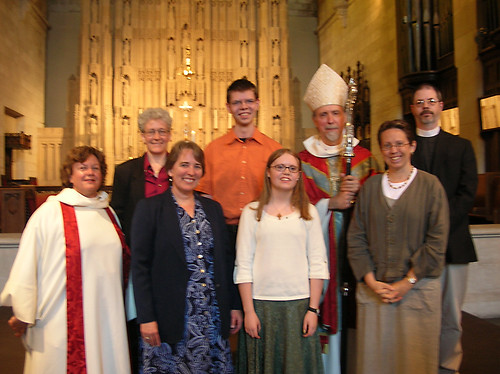Pentecost Leftovers
Michael has posted an exquisite series of photos at his Flickr area, celebrating Lily’s first Communion – she’s growing so fast! It seems like ages since we saw her.
Yesterday we sang a hymn by Michael Hewlett that describes the Holy Spirit’s action apart from the people of Israel and the church:
His the truth behind the wisdoms
Which as yet know not the Lord
which struck me as an impressively nuanced way of making the theological point that divine truth can be known (albeit perhaps obscurely) apart from committed faith – especially impressive since Hewlett managed to say it in rhymed lyric.
That, in turn, reminded me of my favorite little-known Isaac Watts hymn verse, a Lesser Meter doxology:
Glory to God the Trinity
Whose name has mysteries unknown;
In essence One, in person Three;
A social nature, yet alone
Next time I’m in charge of a liturgy, I’ll try to work that one in.


